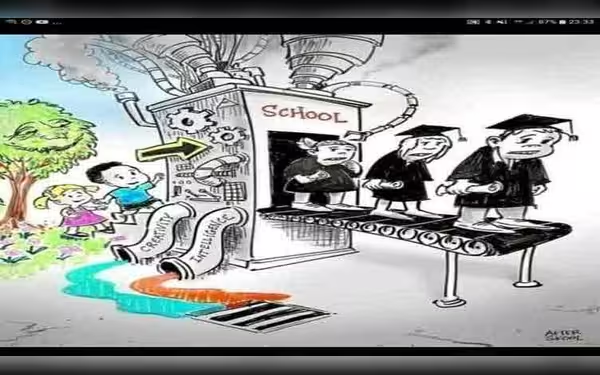Saturday, November 16, 2024 07:50 PM
Punjab Education Reforms: Outsourcing Schools Sparks Debate
- Punjab government outsources 14,000 public schools.
- Critics warn of neglecting root causes of education issues.
- Privatisation may create a two-tier education system.
 Image Credits: dunyanews.tv
Image Credits: dunyanews.tvPunjab's outsourcing of 14,000 schools raises concerns about education quality and inequality.
The education system in Pakistan has long been a topic of debate, with various reforms proposed and implemented over the years. Recently, the Punjab government has taken a significant step by outsourcing over 14,000 public sector schools as part of its privatisation plan. This move has sparked discussions among educators, parents, and policymakers about the effectiveness and implications of such a strategy.
In the first phase of this ambitious plan, the government aims to transfer the management of these schools to private entities. Proponents argue that this could lead to improved standards and better management, as private organisations often have more resources and flexibility. However, critics, including education expert Professor Muhammad Ali, have raised concerns about the approach. He states, "Instead of addressing the root causes of failure, the government is taking an easy way out by privatising schools." This statement highlights a crucial point: simply handing over schools to private operators may not resolve the underlying issues plaguing the education sector.
Many believe that the real problems lie in inadequate infrastructure, lack of trained teachers, and insufficient funding. By focusing on privatisation, the government may be overlooking the need for comprehensive reforms that address these fundamental challenges. The fear is that this could lead to a two-tier education system, where only those who can afford to pay for quality education will benefit, leaving the underprivileged behind.
Moreover, the success of such privatisation efforts in other countries has been mixed. While some regions have seen improvements, others have faced significant setbacks, including increased inequality and reduced access to education for the most vulnerable populations. It raises the question: is privatisation truly the solution, or is it merely a temporary fix?
As the debate continues, it is essential for stakeholders to engage in meaningful discussions about the future of education in Pakistan. The focus should not solely be on privatisation but rather on creating a holistic approach that includes better training for teachers, improved facilities, and increased investment in public education. Only then can we hope to see real progress in the education sector.
While the outsourcing of schools may seem like a bold step towards reform, it is crucial to consider the broader implications of such actions. Education is a fundamental right, and any changes made should prioritize the needs of all students, ensuring that every child has access to quality education. The path forward must be carefully navigated, with a commitment to addressing the root causes of educational challenges rather than opting for quick fixes.













